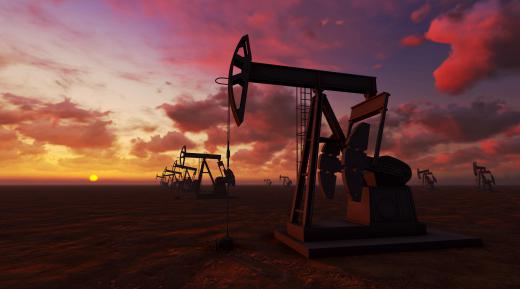Integrated operations are methods of utilizing new processes, technology, and information to facilitate efficient exploration and production within the petroleum industry. It provides members of a team with the ability to work together, even when far apart, to combine different disciplines, increase production, and save money on costs. Members of an integrated operations team can include engineers, scientists, oil executives, and environmentalists. As technology changes, integrated operations change as well to include the newest research techniques and methods within the industry.
Much of integrated operations is based upon computer and telecommunications systems that enable people to work together from separate locations. This reduces the number of people needed for certain operations, such as on an offshore oil rig or petroleum platform. Instead of having a qualified person for each task at each station, communications methods make it easier for individuals to supervise processes from land-based stations. For example, an engineer could work on land and be responsible for overseeing multiple offshore oil rigs instead of focusing all of his or her efforts on one location.

This method of operation in the petroleum industry is geared towards increasing efficiency and decreasing costs associated with expensive production techniques. As efficiency is increased through the better use of resources, the costs automatically go down. It is similar to production and chain management techniques that are found in other parts of industry and production. Better supervision of certain tasks, such as oil well drilling, decreases the amount of mistakes that are made, which also helps the companies save money in the long-term.
Another part of integrated operations involves streamlining the methods that are used to collect petroleum from its natural location in the earth. For example, instead of utilizing expensive oil rigs, pipelines are created to move the petroleum from difficult to reach locations, such as under the ocean floor. Once these systems are put in place, they increase the amount of oil that is extracted while reducing the number of employees that need to be physically present to oversee the process.
Research is a main aspect of integrated operations, as companies begin to test systems that are not normally used in the oil industry. This can help make breakthroughs in the way that operations are handled, which increases efficiency and lowers costs. The petroleum industry has to change constantly to keep up with the demand for oil throughout the world.
